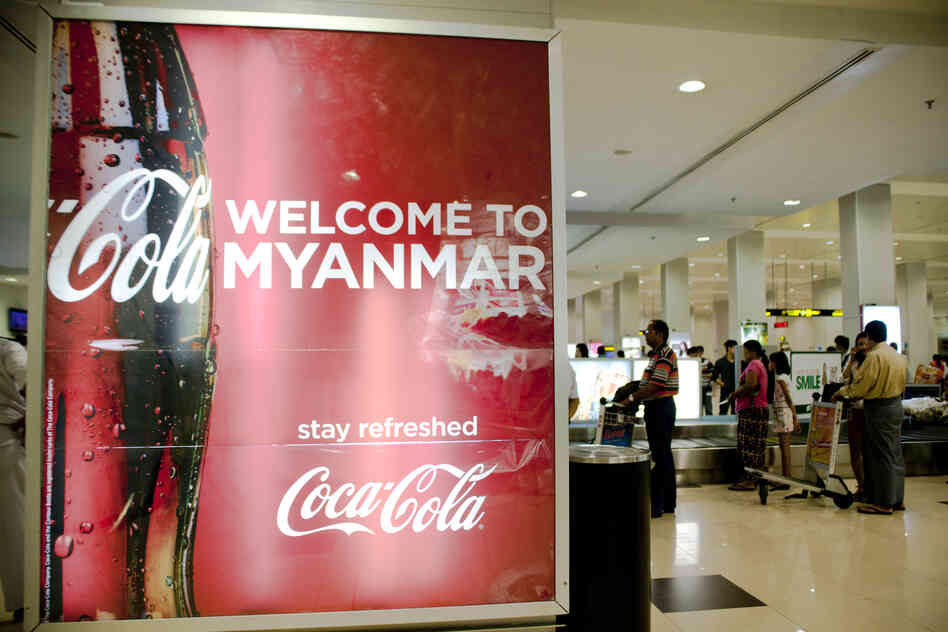Everyone knows Coke. Around the world, Coke brands itself as young, hip, and great to enjoy with friends. Coke ads feature hip music and hipper twenty-somethings smiling, laughing, and drinking the beverage. In some parts of the country, the work is so synonymous with soda that all soft drinks are referred to as Coke. Consumers know that Coke is cheap and the product is consistent. They know that they can get a Coke at basically any restaurant, bar, or vending machine. But this high profile doesn't reach to all corners of the globe.
Coke is available in all but two countries of the world -- North Korea and Cuba have sanctions against the product. Until recently, Myanmar also did not allow Coca-Cola to be sold. In 2012, Coke was allowed back into the country after a 60 hiatus.
In Myanmar the brand was only vaguely remembered. Knock offs, such as "Max Cola" and "Star" Cola took it's place in the market. Upscale hotels and restaurants sold smuggled bottles of the real thing at highly marked up prices; it was known as a rich man's drink. Coke wanted to change all that. The company wanted to shift it's reputation from an upscale drink to something everyone can enjoy and for cheap.
To realign the company's reputation with its branding, the company had to resort to some clever advertising. Taking cues from the campaigns of the 1800s, when no one knew of Coke, the company posted giant ads in shops and cafes explaining the product instead of just reinforcing the brand's image, as it does in America. "Delicious, refreshing," how to drink Coke, and the standardized price, 300 Kyat were all shown in the ads. With this campaign, Coke was able to show the Myanmar public what it was, how to enjoy it, and how cheap it was. With this, the brand took a step towards fixing its reputation.

The post suggests several questions/issues. Is it so hard to reverse engineer coke? At one point that I seem to recall their add campaign talked about their "secret recipe." Couldn't a decent chemist figure out how to make coke? If so, why was there market for coke to capture after returning to Myammar? Is it just the perception that product from the U.S. is better? Or is something else going on?
ReplyDeleteI gather you are a fan of coke yourself. I have weened myself off that stuff and now prefer sparkling water. I wonder if kids would prefer that too, if they were exposed to it. Or is the need for a sweet taste too great?
I'm sure Coke can be reverse engineered to some degree, but when you're thirsty, are you grabbing for an RC Cola or a Sam's Choice-brand soft drink? I imagine not; you're grabbing what you know.
ReplyDeleteFrom the article that I drew from it says, "People knew the brand… [and] living under a dictatorship, with limited choice of products, makes you hate copies and love authenticity. 'We really want the real thing here.'"
I actually can't stand Coke. At work, where everything is Coke products, I drink soda water with a twist of lemon.
Do you know why Coca-Cola was banned there in the first place? Also, I think this is a good example of how the company has attempted to modify its reputation.
ReplyDeleteI agree that Coke is many peoples' first choice when given the option of Coke, RC Cola, or Sam's Choice. We are growing up in a world where common household brands and names are thrown around daily and become the leading brand for consumer goods. I believe most people still think that generic brands and other substitute options are of worse quality and not as highly sought even if brands like Coke and such are the more expensive option. Interesting to see considering how I would think people would always choose the financially cheaper option.
ReplyDelete